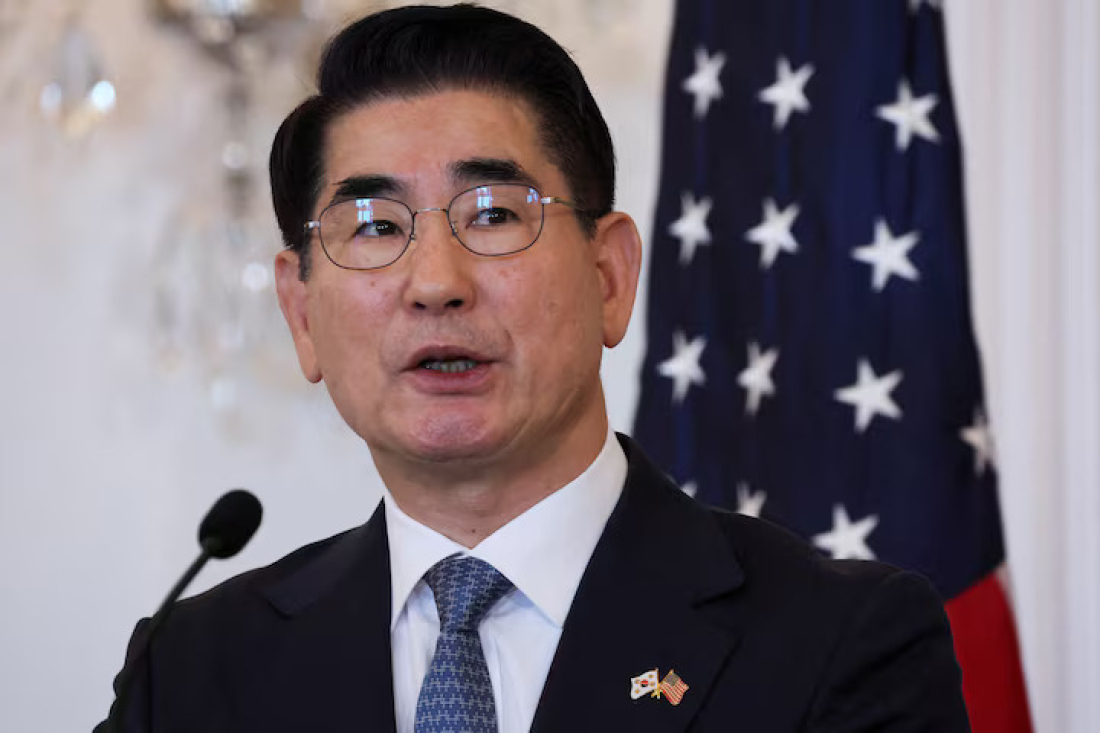Israel orders Lebanese to leave swathe of the south 'immediately'
Israel has warned residents to leave a significant area in southern Lebanon, instructing them to move north of the Li...
Prosecutors in South Korea have detained former Defense Minister Kim Yong Hyun as part of an investigation into last week’s brief martial law imposition, deepening political turmoil in the country.

South Korean prosecutors have detained Kim Yong Hyun, the former defense minister, as part of the investigation into last week’s brief but impactful martial law imposition. Kim is the first high-profile figure detained in connection with the case, which saw special forces troops encircle the National Assembly and helicopters hovering above the building.
Key Developments
The arrest comes after President Yoon Suk Yeol managed to avoid an impeachment motion led by opposition parties. Most ruling party members boycotted the vote in parliament, preventing the required two-thirds majority needed to suspend Yoon’s powers. However, the Democratic Party remains committed to submitting a new impeachment motion against Yoon.
Authorities have launched an intensive investigation led by a 62-member special team, headed by Senior Prosecutor Park Se-hyun, with the aim of clearing any doubts surrounding the martial law case. Law enforcement officials are probing allegations of rebellion and treason, which could result in severe legal consequences.
Opposition and Government Repercussions
Kim’s detention follows accusations from the Democratic Party that he recommended the martial law imposition to Yoon. Vice Defense Minister Kim Seon Ho confirmed in parliament that Kim ordered the deployment of troops to the National Assembly. In a public admission, Kim Yong Hyun stated,
“All troops who performed duties related to martial law were acting on my instructions, and all responsibility lies with me.”
The Democratic Party has accused Yoon’s martial law imposition of being “unconstitutional” and likened it to an “illegal rebellion or a coup.” They have also filed complaints against multiple individuals, including Yoon, with South Korean police.
Political Turmoil and Public Sentiment
President Yoon’s martial law decision is the first of its kind in South Korea in over 40 years and has heightened political instability. The situation has sparked widespread protests calling for Yoon’s resignation, with surveys indicating significant public support for his impeachment.
Despite internal criticism, the ruling People Power Party remains hesitant about Yoon’s impeachment, fearing a potential loss of the presidency to liberal forces. Party leader Han Dong-hun expressed a willingness to find an “early and orderly exit” for Yoon, prioritizing a transition that minimizes confusion. However, Han did not specify a timeline.
The Democratic Party countered Han’s statement, declaring that excluding an incumbent president from key state affairs would be unconstitutional and demanding the immediate arrest of Yoon and anyone implicated in the case.
Diplomatic Impact
The political unrest has raised alarms among South Korea’s key allies, including the United States and Japan, who are closely monitoring the situation. Yoon’s martial law announcement, coupled with ongoing internal struggles, threatens to destabilize South Korea’s political landscape and impact foreign policy decisions.
As the situation unfolds, the future remains uncertain for South Korea, with mounting internal pressures and significant public calls for accountability shaping the path ahead.
U.S. President Donald Trump said the U.S. military has enough stockpiled weapons to fight wars "forever"; in a social media post late on Monday. The remarks came hours before conflict in Iran and the Middle East entered its fourth day.
U.S. first lady, Melania Trump chaired a UN Security Council meeting on children and education in conflict on Monday (2 March), a move criticised by Iran as hypocritical following U.S. and Israeli strikes that triggered a UN warning about risks to children.
A torpedo from a U.S. submarine sunk an Iranian warship off the coast of Sri Lanka, U.S. Secretary of Defense, Pete Hegseth told reporters as the Iranian conflcit entered its fifth day on Wednesday.
The U.S. embassy in Riyadh was hit by two drones resulting in a limited fire and some material damage, the kingdom's defence ministry said in a post on X on Tuesday, citing an initial assessment.
Shahid Motahari Sub-Speciality Hospital in northern Tehran and parts of the Golestan Palace were bombed on day two of the U.S.‑Israel strikes. AnewZ Touraj Shiralilou is in Iran's capital city and said that the facility was flattened in an airstrike.
Israel has warned residents to leave a significant area in southern Lebanon, instructing them to move north of the Litani River as hostilities with the Iran-backed Lebanese group Hezbollah intensified on Wednesday.
U.S. Defense Secretary Pete Hegseth says the United States is making gains in its conflict with Iran after a key Iranian naval target was destroyed, confirming that the strike was carried out by a U.S. submarine off the coast of Sri Lanka. Rescue efforts are now under way for the ship’s crew.
Start your day informed with AnewZ Morning Brief. Here are the top news stories for the 4th of February, covering the latest developments you need to know.
Strikes across the Middle East are intensifying, fuelling travel disruption, driving up global energy prices and forcing diplomatic missions to shut their doors.
U.S. President Donald Trump has said the United States has a “virtually unlimited supply” of munitions and is capable of sustaining military action indefinitely, as the conflict with Iran entered its fourth day.
You can download the AnewZ application from Play Store and the App Store.

What is your opinion on this topic?
Leave the first comment